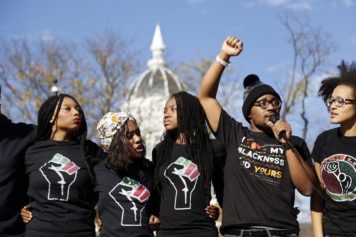African Americans, Asians, Latinos and women still face greater levels of unemployment than white males—a gap that has persisted throughout the last few decades, according to a new study by an economist at the University of Missouri.
The economist, Peter Mueser, looked more closely at the various fields that employ each group and studied unemployment patterns. This allowed him to identify inequalities that can be hidden when one looks at the job market as a whole.
While the differences in the unemployment rate between white males and everybody else have narrowed in recent years, the gap stubbornly remains.
“The belief that Americans are achieving equal levels of unemployment is flawed,” said Mueser in a statement released by the University of Missouri. “By statistically accounting for differences in professions and industry, we developed a more detailed reflection of unemployment experiences in different groups. For example, although overall unemployment rates for women are similar to those of men, women are more frequently employed in sectors with generally low unemployment, such as health care and education. The concentration of women in those fields masks higher unemployment rates within sectors.”
The study—called “The Role of Industry and Occupation in Recent US Unemployment Differentials by Gender, Race, and Ethnicity”—found that even within higher-paying occupations, the unemployment gap persists, meaning that it won’t be closed by creating more educational programs to send blacks and other minorities into those fields.
“Training more black lawyers wouldn’t necessarily result in parity, since even within occupations, non-whites have higher unemployment,” said Mueser.
But Hispanics may benefit from special programs geared at them because they are underrepresented in fields that require higher education. In lower-level jobs, their unemployment rate is roughly equal to whites.
“Many recent immigrants from Latin America came with limited higher education, but are already showing unemployment equality with whites in low-skill jobs,” said Mueser. “In contrast to non-whites, it seems that education may result in lower unemployment for Hispanics.”
Mueser said his research refutes the idea that “genders, races and ethnicities have the same labor market experiences.”
“However, we can’t say anything about why these inequalities exist,” he said. “Liberals and conservatives may have very different opinions about why.”
The study, which was co-authored by Marios Michaelides, will be published in the Eastern Economic Journal.


